Key takeaways:
- Pro-life advocacy emphasizes the intrinsic value of all human life and the importance of providing support and resources to those facing difficult decisions.
- Community support during crises can significantly influence individuals’ decision-making, highlighting the impact of compassionate listening and connection.
- Accessing reliable resources and mentorship from pro-life organizations can offer essential guidance and foster a sense of belonging during challenging times.
- Personal stories and shared experiences are crucial for healing, showcasing the power of community and empathy in navigating crises related to pregnancy and life choices.
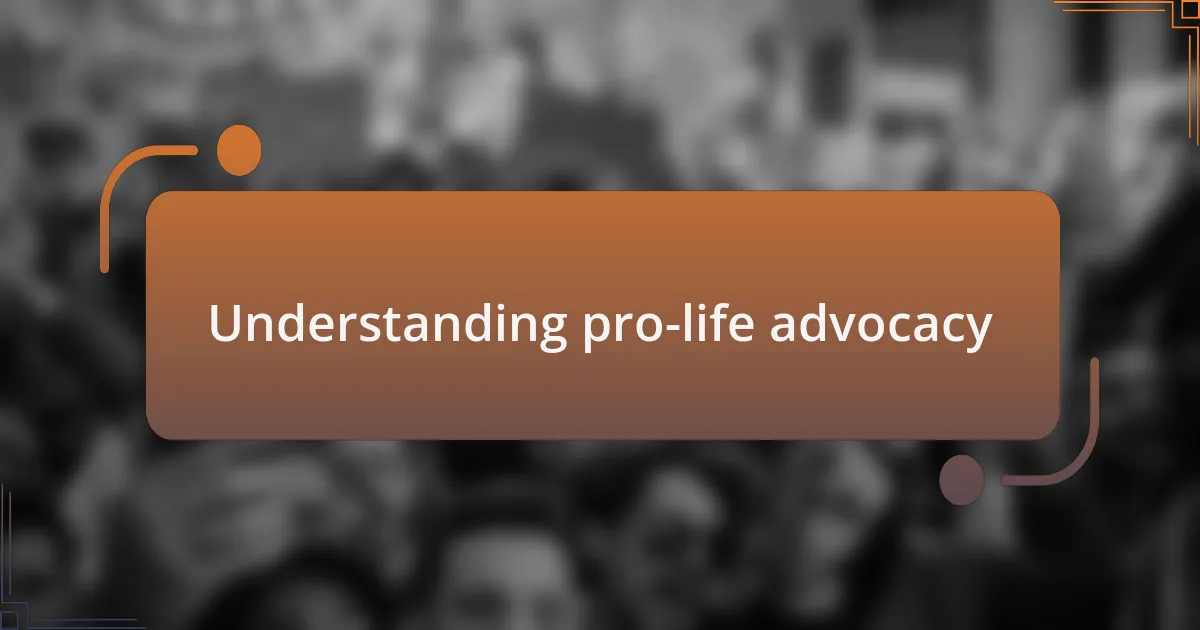
Understanding pro-life advocacy
Pro-life advocacy is rooted in the belief that every human life, from conception to natural death, holds intrinsic value. I remember a moment when I was volunteering at a local crisis pregnancy center, and a young woman walked in visibly distressed, unsure about her options. It struck me how important it is for us to support individuals in these challenging circumstances, reflecting the heart of what pro-life advocacy stands for.
This movement isn’t just about opposition to abortion; it encompasses a holistic approach to valuing life. I often wonder, how can we cultivate a society that nurtures both the unborn and those facing difficult decisions? It’s about providing resources, education, and compassion to empower decisions that uphold life. My experiences have taught me that engaging in open, heartfelt conversations can not only change minds but also touch souls.
At its core, pro-life advocacy invites us to consider the real stories behind the issues, reminding us of our collective responsibility. I recall surprising myself during discussions with friends; when I shared personal experiences, their perspectives shifted. Each story shared is a thread weaving a deeper understanding of why advocating for life matters, not just theoretically, but personally.
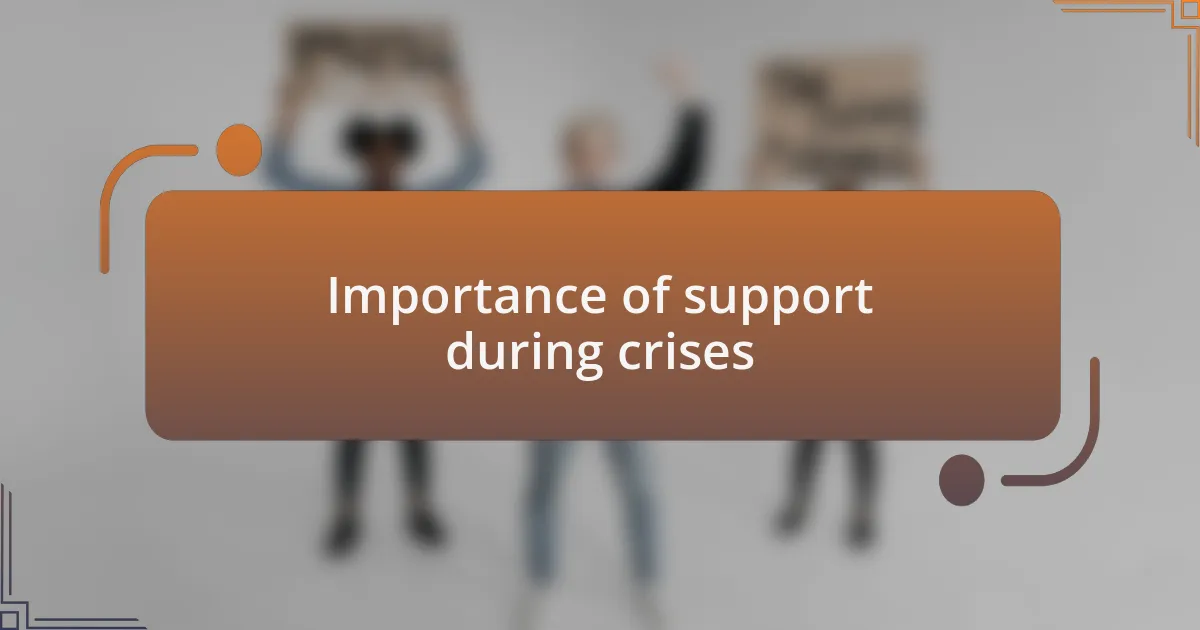
Importance of support during crises
Support during crises acts as a lifeline when individuals face overwhelming challenges. I once witnessed a parent struggling with unexpected news about their pregnancy, feeling isolated and afraid. In moments like these, it became clear to me just how vital a community is to help guide someone through turmoil. Without that support, the weight of uncertainty can feel crushing.
Having a support network can alter the course of someone’s decision-making process. During a particularly intense discussion at our local pro-life group, we shared stories of how simply being there for someone—whether through a phone call or a nurturing smile—had made all the difference. It really got me thinking: how often do we underestimate the impact of compassionate listening? It can transform despair into hope.
In tough times, feeling like you’re not alone can rekindle a sense of purpose and clarity. I recall working alongside others who provided tangible help, from financial assistance to emotional guidance, for families in distress. These experiences reinforced my belief that reaching out during crises not only uplifts the individual in need but also strengthens our shared commitment to preserving life at all stages.
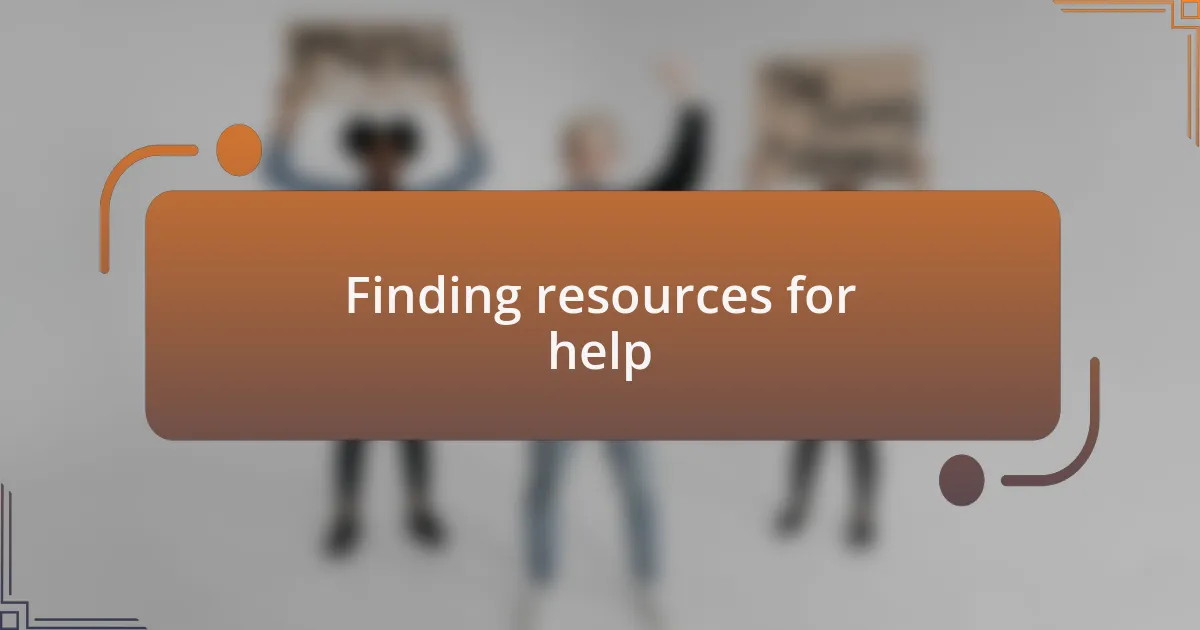
Finding resources for help
Finding reliable resources when you’re in crisis can be extraordinarily challenging, yet it’s crucial. I remember a time when I needed immediate help for a friend navigating an unexpected pregnancy. I reached out to local organizations dedicated to supporting families, and the staff were not only knowledgeable but also incredibly empathetic. They provided not just practical resources, like parental classes and counseling, but also a sense of belonging that felt so reassuring.
Networking can lead you to support systems you never knew existed. I often encourage others to tap into their community networks—like churches or local groups—where people genuinely want to help. Just last month, I connected with a mother who found solace in a support group she stumbled upon through a flyer at a community center. It made me reflect: How often do we overlook the simplest paths to find the help we need until we see someone else take them?
Sometimes, the best resources come from those who’ve walked a similar path. I have learned that sharing experiences can be healing. Last summer, I joined a panel where individuals shared their journeys through crisis. Hearing their stories illuminated the fact that the most powerful help can come from peers who understand your struggles firsthand. In moments of despair, knowing that someone else has emerged from similar shadows can provide a lifeline of hope.
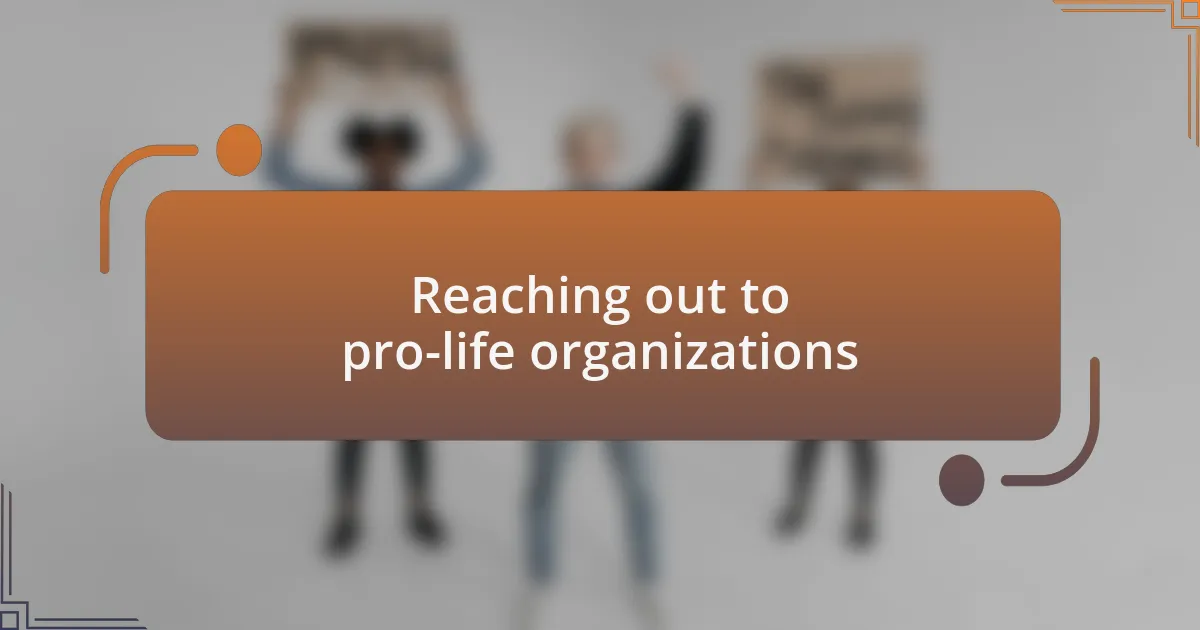
Reaching out to pro-life organizations
Reaching out to established pro-life organizations can be a game changer during a crisis. I remember calling a nearby pregnancy center just when a close friend needed guidance. They answered not only with information about resources but with compassion that instantly made a difficult situation feel more manageable. It struck me how powerful it was to have someone on the other end of the line who truly understood the fears and anxieties we faced.
It’s incredible how these organizations often have access to a wide range of supportive services, from counseling to legal advice. I once attended a workshop hosted by a pro-life organization, and the conversations sparked new ideas for navigating tough choices. Reflecting on that evening, I asked myself: How many others could benefit from these discussions if they knew about these opportunities? Engaging with such groups can provide clarity and solace, showing you that you’re not alone.
Additionally, many pro-life organizations offer mentorship programs that pair those in crisis with individuals who have successfully navigated similar experiences. I took part in one such initiative, and hearing my mentor’s story brought an emotional resonance I hadn’t anticipated. It’s moments like these that remind me how important it is to reach out—whether you need practical assistance or just someone to listen and share wisdom from their own journey.
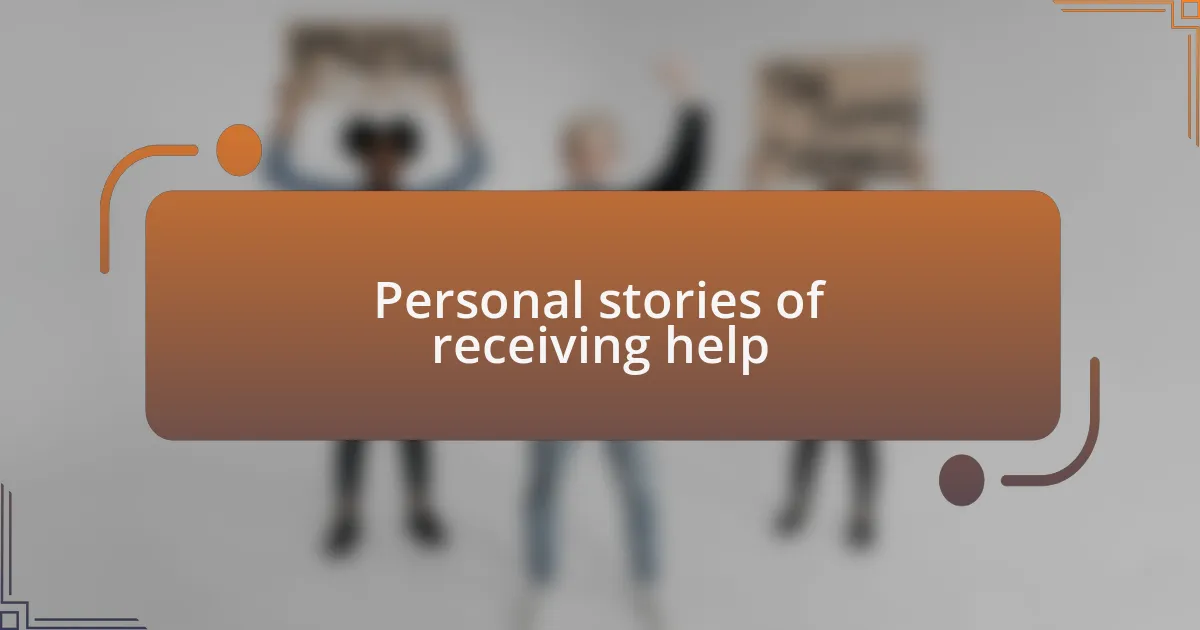
Personal stories of receiving help
I recall a time when I was overwhelmed by uncertainty about my pregnancy. A friend urged me to connect with a local support group, and I hesitated at first, thinking I could handle it alone. But once I walked through those doors, I realized I had found a safe haven, surrounded by people who had walked similar paths and were ready to offer their hearts and ears.
The warm embrace of understanding was unlike anything I had experienced before. During one particularly moving session, a woman shared how she had once felt hopeless, yet through the love of that community, she found strength to choose life. It made me wonder: How many of us are unknowingly holding back our voices, waiting for the right moment to speak up and share?
One evening, I reached out to a helpline run by a pro-life organization during a moment of panic. I was struggling to see a positive future amid my fears. To my surprise, the counselor not only helped me with practical resources but also shared her own story of fear transformed into hope. That connection made all the difference—it reminded me that through shared experiences, we often heal together, piece by piece.